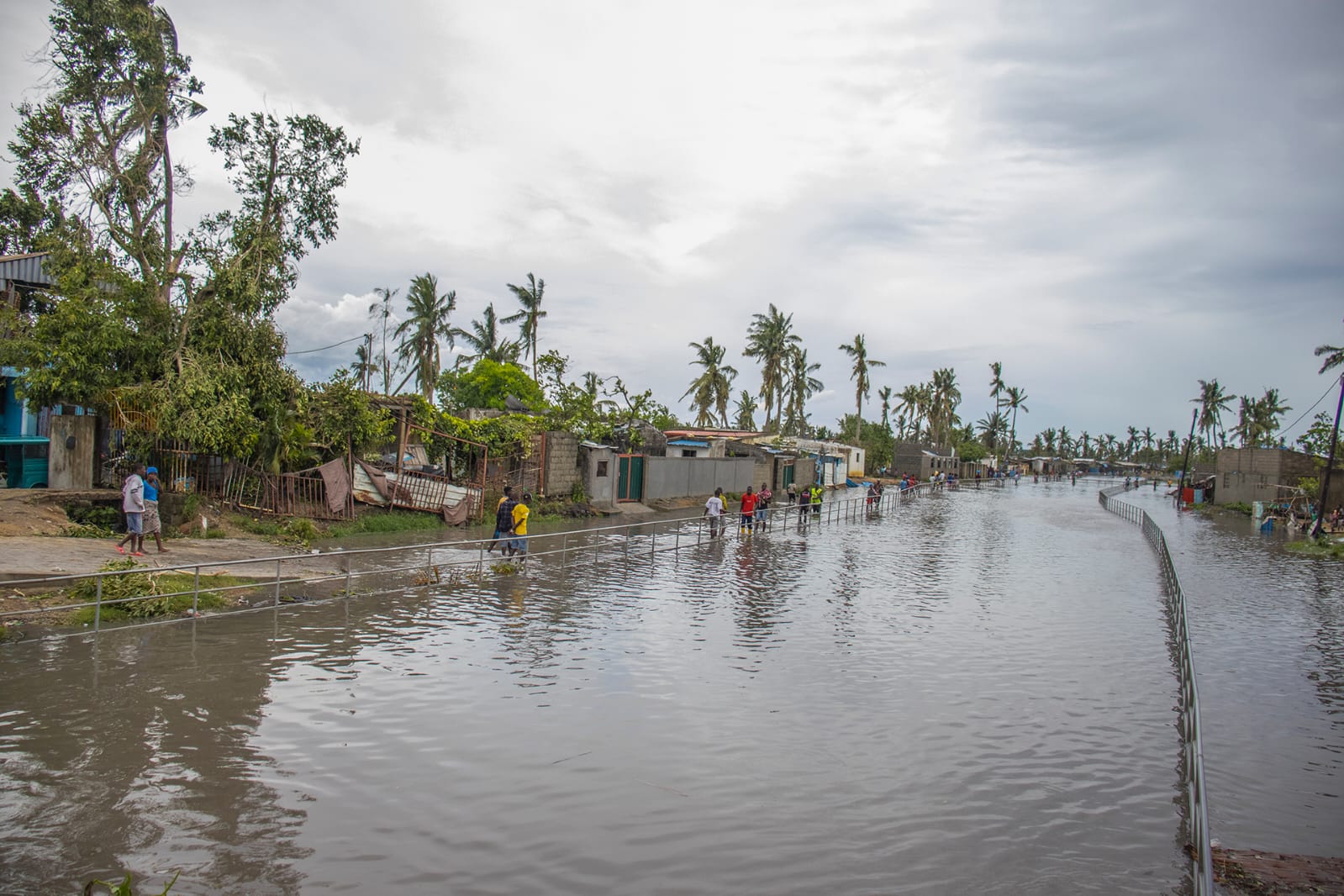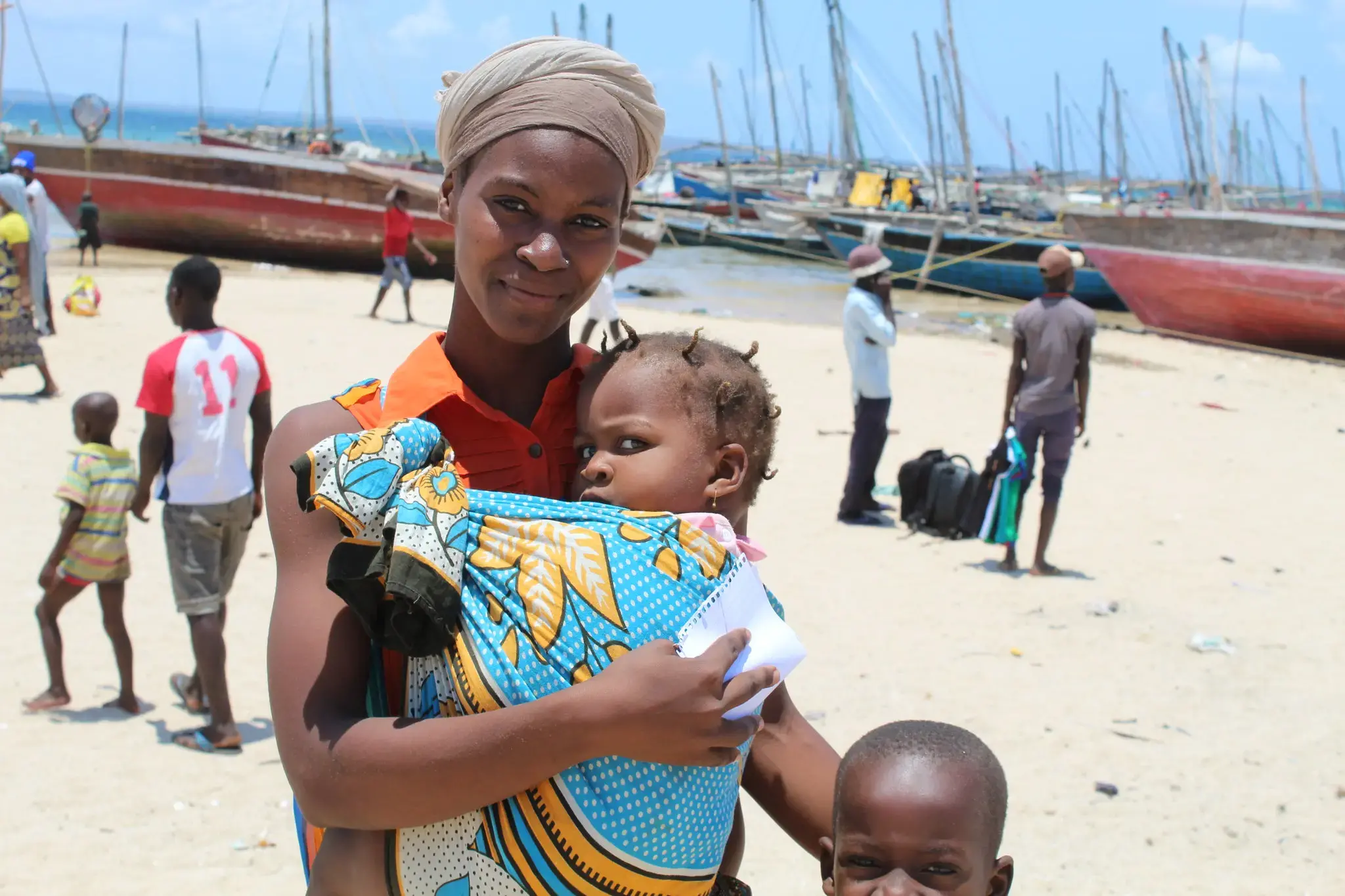SOFALA, Mozambique—In the early hours of 23 January, Cyclone Eloise – a category two storm bringing winds of up to 160 kilometres per hour – made landfall in Sofala Province in central Mozambique, an area still recovering from the devastation caused by Cyclone Idai nearly two years ago.
Heavy rains in the lead-up to Cyclone Eloise had already raised rivers and basins above their alert levels, increasing the risk for significant flooding in low-lying areas, including Busi district and Beira city.
Preliminary hydrographic analysis suggests that the Limpopo river may flood as a result of the cyclone, prompting preparedness efforts in northern Gaza Province and Limpopo valley.
UNFPA, the United Nations sexual and reproductive health agency, is already on the ground in Sofala Province and has joined efforts led by the Government of Mozambique to assess the full extent of the cyclone’s damage and support a coordinated, rapid response that attends to the needs of those affected and most vulnerable, including women, girls, and young people. UNFPA is also liaising with protection and health cluster working groups to ensure that the safety, health, and protection of women and girls – who often bear the brunt of a crisis – remain at the fore.
Chris Neeson, a UNFPA staff member based in Beira, describes his experience of living through Cyclone Eloise: “I heard so much wind and rain in the early hours of the morning. Water entered my home, as well as rocks and leaves that had flown off my neighbours’ homes. It was impossible to sleep because of the noise and fear. Electricity has been down from last night and we’ve been unable to make calls.”
When I went outside, there was water everywhere – up to my knees – and trees, electrical wires, roof tiles, and fences all destroyed, strewn about on the streets.

“When I went outside, there was water everywhere – up to my knees – and trees, electrical wires, roof tiles, and fences all destroyed, strewn about on the streets. Thank God it has stopped raining. I never thought I would be afraid of water, but this was horrible,” he says.
Based on the rapid needs assessment, UNFPA stands ready to provide humanitarian assistance through services focused on sexual and reproductive health and the prevention of and response to gender-based violence.
Cyclone Eloise threatens to worsen an already dire situation for communities in Sofala Province, one of the areas that suffered from the impacts of Cyclone Idai in March 2019, which affected an estimated 1.85 million people.
“Some people who experienced Cyclone Idai say Eloise was just as bad – not quite as strong, but longer,” says Chris.
According to UN OCHA, Sofala Province and the entire Zambezi Basin have experienced significant flooding, following heavy rainfall from mid January, which affected more than 21,000 people and claimed three lives (data from Mozambique’s National Institute for Disaster Management and Risk Reduction, INGD).
In general, people are feeling tired and frustrated – with successive disasters on top of the strain of COVID-19.
This scenario comes on the heels of Storm Chalane, which also impacted areas of Sofala Province, damaging dozens of schools and health facilities less than a month ago.
With a long-standing presence in Sofala Province, UNFPA is prepared to deliver and install seven tents to serve as temporary health centres and women-friendly spaces, to ensure the continuity of health and protection-related services.
“In general, people are feeling tired and frustrated – with successive disasters on top of the strain of COVID-19,” concludes Chris.
The agency is also on standby to distribute 500 dignity kits containing essential items for vulnerable women and girls impacted by disasters, such as soap, underwear, face masks, reusable menstruation pads, and more, to support their personal health and feminine hygiene. The kits represent a small but powerful form of assistance to vulnerable women and girls, to help them reclaim a sense of dignity and self-worth, and avoid starting from zero.




